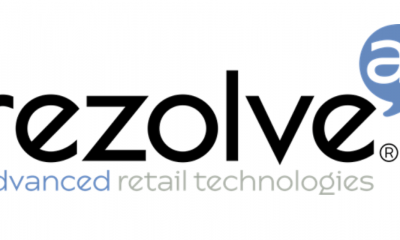

Metaverse
AI tools can help, but they can also cause trouble. What advisors need to know. – Crypto News
A few wealth advisory firms have already gotten into trouble for “AI washing,” the practice of overstating the role that AI is playing in their businesses.
All this is happening in a murky regulatory landscape. A few firms have already gotten into trouble for “AI washing,” the practice of overstating the role that AI is playing in their businesses. Last year, the Securities and Exchange Commission settled charges against two small advisory firms, Delphia and Global Predictions, for making false and misleading statements about their purported use of artificial intelligence.
Barron’s Advisor spoke to several advisors and industry professionals about how they are using AI to innovate while steering clear of regulatory trouble. Here’s what we found:
AI use skews younger. A cadre of younger financial advisors is experimenting with new ways to use the technology to boost their productivity and more quickly build their practices. Many are responding to demands from clients. Some 54% of Gen Z and Millennials prefer to work with a financial advisor who uses AI as a tool, according to recent Northwestern Mutual research.
Enforcement risk is real. Brian Hamburger, founder and CEO of MarketCounsel, a consultancy to financial advisors, contends that large firms shouldn’t take any solace from the fact that enforcement actions thus far have been confined to the small practices.
“Regulators will go after relatively unknown firms, because they can extract a very quick settlement from them and use that settlement to inform the industry that there’s a cop on patrol,” says Hamburger, a lawyer who advises clients on legal issues.
Spotlight on AI compliance tools. In June 2024, Finra issued a regulatory notice stating that if a member firm is using Gen AI tools as part of its supervisory system—for the review of electronic correspondence, for instance—“its policies and procedures should address technology governance, including model risk management, data privacy and integrity, reliability and accuracy of the AI model.”
Hamburger says the verdict is still out on how focused the SEC, Finra, and other regulators will be on AI-related violations. But he says that state regulators are already “getting out front of the federal regulators in terms of coming up with rules and requirements pertaining to the responsible use of AI.”
Client data a top concern. For executives overseeing the integration of AI tools into their Customer Relationship Management (CRM) systems, a top concern appears to be the protection of client data. “With anything we are looking to build, it has to be within our firewalls, and our client data must be fully protected and secured,” says Inez Louzonis, head of platforms and capabilities at Merrill Lynch.
Chatbots and virtual assistants can help. Financial advisory firms are rapidly embracing AI-powered chatbots and virtual assistants to handle routine customer inquiries, such as account balances, password resets, and market data. This can potentially free up human advisors to focus on more complex, relationship-driven tasks.
The automation of tasks once conducted only by humans couldn’t come sooner for some. “Over the coming decade, we’re looking at a shortage of around 100,000 financial advisors,” says Leslie Norman, the chief technology officer of Dynasty Financial Partners, a firm that provides a tech platform and other services for roughly 500 independent advisors. “The good news is AI advancements offer a way out, because we see the ability for AI to inject scale into the way that advisors work with their clients, allowing them to serve more clients.”
Next-gen is getting good AI results. Norman contends that Dynasty’s network of independent advisors—who tend to be younger on average than brokers at traditional firms—have been quick to adopt the AI tools that the firm is providing. “Within a given office, there might be some who are using it multiple times a day, and others more on occasion, but overall, the adoption has been high.”
Range is a wealth management start-up that plans to use AI to automate financial advice. Sam Swenson, one of its financial advisors, says its AI tools help him collect and analyze data from clients, build retirement plans, and project taxes. “I’m at least twice as productive in terms of how quickly I can move through data,” he says.
Eric Sontag, COO and president of Wealthspire, believes now that AI is handling client meeting notes and other tasks, part of the junior advisor’s job is gone. He points out that the change gives new employees a chance to focus on building critical soft skills, such as careful listening and persuasion. “You can’t overestimate the importance of the EQ and interpersonal side of being an advisor,” he says.
Guides are available. The certified financial planning industry is taking steps to prepare advisors for dealing with AI, says Elizabeth Miller, a Summit, N.J.-based planner who chairs the CFP Board, which sets standards for the industry. In February 2025, the CFP Board issued a Generative AI Ethics Guide on the proper uses for AI, including summarizing client meeting notes and aggregating client documents, “so long as the information may be kept confidential.”
But Miller stresses that planners must tread carefully when it comes to offering financial advice using AI. “I don’t think AI can yet give an appropriate, perfect asset allocation for everyone out there.”
Learn to combine skills. Patrick Biggs, a New York City-based Morgan Stanley advisor, is a regular user of Debrief, a note taker, summarizer and first-draft communication composer, and other Morgan Stanley AI tools that were built in-house using the firm’s proprietary data but also leverage OpenAI’s chatbot ChatGPT.
However, he says the human element must be viewed as “our North Star.” Success in an AI-driven world, he says, will be “about combining the best of technology and the best of human advice, and delivering it in one seamless client experience.”
-

 others1 week ago
others1 week ago228,876 Americans Warned After Hackers Hit Financial Firm – Names, Social Security Numbers and More Potentially Exposed – Crypto News
-

 Technology1 week ago
Technology1 week agoBest phones under ₹25,000 you can buy before the New Year: OnePlus Nord CE 5, Realme P3 Ultra and more – Crypto News
-

 Technology1 week ago
Technology1 week agoiPhone 17 Pro Max gets over ₹11,000 discount ahead of New Year: how to grab the deal – Crypto News
-
Business5 days ago
Coinbase CEO Outlines 2026 Vision: All-in-One Exchange in Priority – Crypto News
-
others7 days ago
Dogeball’s Live Testnet Gains Traction Ahead of Its Presale Launch – Crypto News
-

 Technology7 days ago
Technology7 days agoNew Year 2026 cinematic portraits made easy: 5 Top AI prompts for ChatGPT, Gemini, and Grok – Crypto News
-
Business5 days ago
Coinbase CEO Outlines 2026 Vision: All-in-One Exchange in Priority – Crypto News
-

 others5 days ago
others5 days agoApple CEO Pours $2,940,000 Into Stock That Billionaire Paul Tudor Jones Has Placed Massive Bullish Bet On – Crypto News
-

 Metaverse1 week ago
Metaverse1 week agoLaw firms prep for a deeper AI integration in 2026 as it enters workflows – Crypto News
-

 Metaverse1 week ago
Metaverse1 week agoLaw firms prep for a deeper AI integration in 2026 as it enters workflows – Crypto News
-

 others1 week ago
others1 week agoBig Rotation Into Bitcoin Incoming As BTC-Gold Ratio Flashes Bullish Reversal Signal: Michaël van de Poppe – Crypto News
-

 Cryptocurrency5 days ago
Cryptocurrency5 days agoBitcoin Dominance Logs Rapid Plunge as XRP, SHIB, and Other Altcoins Surge – Crypto News
-

 Blockchain1 week ago
Blockchain1 week agoRezolve Debuts Revenue Pools to Support Blockchain – Crypto News
-

 others1 week ago
others1 week agoUSD/INR opens flat near 90.20 on last trading day of 2025 – Crypto News
-
Business5 days ago
Coinbase CEO Outlines 2026 Vision: All-in-One Exchange in Priority – Crypto News
-

 Blockchain1 week ago
Blockchain1 week agoGalaxy Digital Explains The Setup – Crypto News
-

 Cryptocurrency1 week ago
Cryptocurrency1 week agoCrypto Goes to Hollywood – Decrypt – Crypto News
-
Technology5 days ago
Dogeball ICO Begins January 2 as the Project Prepares for Its 2026 Roadmap – Crypto News
-
Business4 days ago
Top Gainers of the Week: MYX, PEPE, CC Lead Market Gains as as Bitcoin Rallies To $90k – Crypto News
-

 Technology1 week ago
Technology1 week agoGoogle Photos set to arrive on Samsung AI TVs with new smart viewing features: All you need to know – Crypto News
-

 Technology1 week ago
Technology1 week agoBharat Taxi to launch nationwide on January 1, 2026: here’s everything you need to know – Crypto News
-

 Cryptocurrency1 week ago
Cryptocurrency1 week agoBitcoin Price Below $90K: A Healthy Correction or Brewing Trouble? – Crypto News
-

 Blockchain1 week ago
Blockchain1 week agoKey Catalyst For Potential Surge Toward $150,000 Next Year – Crypto News
-

 Blockchain1 week ago
Blockchain1 week agoGold and Bonds Take the Lead – Crypto News
-

 Cryptocurrency1 week ago
Cryptocurrency1 week agoWhat to Expect After the Latest Fed Rate Cut – Crypto News
-
others1 week ago
Why Are Crypto Prices Surging on the Last Day of 2025? – Crypto News
-
Technology1 week ago
Bitcoin Price Prediction Ahead of FOMC Minutes – Crypto News
-

 Cryptocurrency1 week ago
Cryptocurrency1 week agoDavid Beckham–backed Prenetics abandons Bitcoin strategy to focus on core health business – Crypto News
-

 Blockchain7 days ago
Blockchain7 days agoBitcoin Enters Decision Phase, But What Does It Mean For The Crypto Market? – Crypto News
-

 Cryptocurrency7 days ago
Cryptocurrency7 days agoBitwise Files for 11 Altcoin ETFs Targeting AAVE, UNI, SUI, More – Crypto News
-

 Cryptocurrency6 days ago
Cryptocurrency6 days agoFrom Bybit to Coinbase: 2025’s Biggest Crypto Hacks and Breaches – Crypto News
-

 others6 days ago
others6 days agoBreaking down the trendline shift and resistance ahead – Crypto News
-
Technology6 days ago
Bitcoin Treasury News: Tether Boosts Holdings by 8,888 BTC Despite Market Volatility – Crypto News
-
Business5 days ago
Why is PEPE Coin Rising Today (Jan 2) – Crypto News
-

 Cryptocurrency5 days ago
Cryptocurrency5 days agoCanton’s $6T RWA rails and Lighter’s Hyperliquid multiple – Crypto News
-
others5 days ago
Dogecoin Price Jumps 10% as Whales Scoop Up 220M DOGE; What’s Next? – Crypto News
-
others5 days ago
Analyst Predicts Cardano Price to Surge 103% to $0.75 as Midnight, Leios Launch Near – Crypto News
-

 Blockchain5 days ago
Blockchain5 days agoXRP Enters A Make-or-Break Zone As This Long-Term Support Cracks – Crypto News
-

 Technology5 days ago
Technology5 days agoWhat to Stream: Kid Laroi, The Pitt and Tron: Ares – Crypto News
-
Business1 week ago
Is $1 Dogecoin Price Technically Possible in 2026? – Crypto News
-
others1 week ago
United States Initial Jobless Claims came in at 214K, below expectations (223K) in December 19 – Crypto News
-

 Metaverse1 week ago
Metaverse1 week agoWhy Bernie Sanders is targeting ‘richest people in the world’ over AI boom? – Crypto News
-

 Cryptocurrency1 week ago
Cryptocurrency1 week agoAnother week, another MetaDAO advertisement – Crypto News
-
others1 week ago
DOGEBALL Launches as the World’s First Layer-2 Powered Crypto Game – Crypto News
-

 others1 week ago
others1 week agoUSD/JPY stalls as year-end volumes evaporate, Yentervention risk looms – Crypto News
-

 Blockchain1 week ago
Blockchain1 week agoGold and Bonds Take the Lead – Crypto News
-

 Blockchain1 week ago
Blockchain1 week agoPrivacy Coins Outperform as Crypto Investors Turn Defensive – Crypto News
-

 Blockchain1 week ago
Blockchain1 week agoCould A Bitcoin Drop To $74,000 Spell Bankruptcy For Strategy? Top Analysts Respond – Crypto News
-

 others1 week ago
others1 week agoRobinhood CIO Reveals Firm’s 2026 Stock Market Outlook – Here’s the S&P 500 Price Target – Crypto News
-

 others1 week ago
others1 week agoRobinhood CIO Reveals Firm’s 2026 Stock Market Outlook – Here’s the S&P 500 Price Target – Crypto News


















